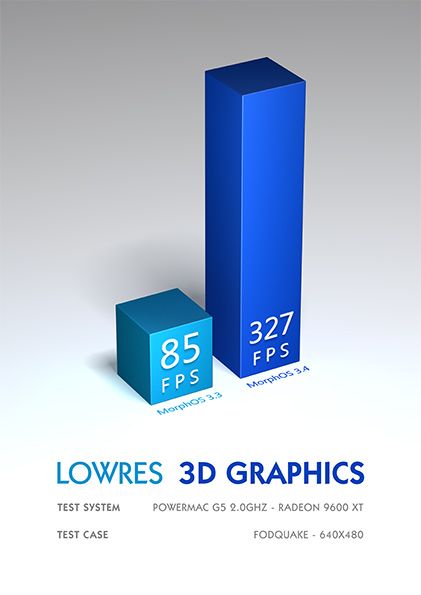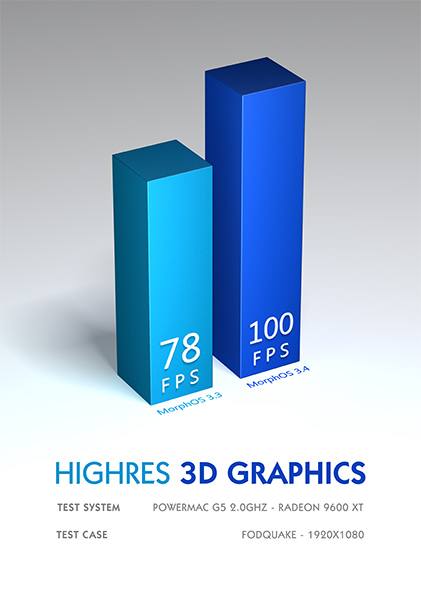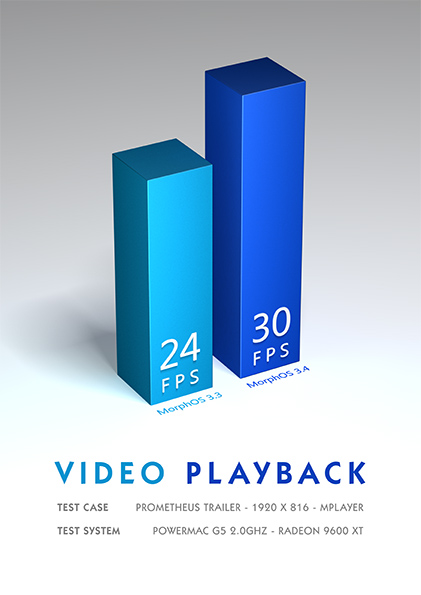 On this page, the MorphOS development team informs about recent OS updates, development and other related topics. Below is a list of the most recent publications.
On this page, the MorphOS development team informs about recent OS updates, development and other related topics. Below is a list of the most recent publications.
A new version of MorphOS OpenSSL3 library has been released. This version includes fixes for two minor security vulnerabilities: CVE-2024-9143 and CVE-2024-13176. More importantly, it adds functionality enabling support for QUIC protocol, allowing applications to implement the latest version of the hypertext transfer protocol (i.e. HTTP/3).
While neither the vulnerabilities fixed, nor the new features added are absolutely necessary, you can install this version of openssl3.library to benefit from the improvements already with MorphOS 3.19: Download
To install it, copy the file to MOSSYS:Libs and reboot.
The MorphOS development team is proud to announce the immediate availability of MorphOS 3.19. This release includes numerous important stability and security improvements.
For a more extensive overview of the changes included in MorphOS 3.19, please read our release notes.
We strongly urge new users to carefully read our installation and troubleshooting guides before they attempt to install MorphOS for the first time. Existing users can upgrade via the familiar procedure but are encouraged to read the guides as well. MorphOS 3.19 is available for download in our files section.
A new vulnerability, CVE-2023-2650, has been identified and fixed for the version of OpenSSL that is included in MorphOS 3.18.
A fixed OpenSSL library will be bundled with a future MorphOS release. Meanwhile, you can install the following replacement openssl3.library that fixes the problem for MorphOS 3.18: Download
To install it, copy the file to MOSSYS:Libs and reboot.
The MorphOS development team is proud to announce the public release of MorphOS 3.18! This new release includes several new applications such as Hex - a scriptable file/RAM/disk hex editor, ArchiveIt - a ZIP archiver/unarchiver application and Thermals - an app displaying thermal and fan information and graphs.
In addition, MorphOS 3.18 supports Samba 2 and 3 network share browsing and mounting in the Ambient desktop.
Radeon drivers have been updated to better support dual monitors, more graphics card models and 3D, including updated TinyGL library and drivers. We have also improved Realtek 8168 ethernet drivers with support for more card variants and enhanced networking stability on PCI express systems like PowerMac G5 11,2. USB input device connectivity issues on supported CyrusPlus 5040 systems have been corrected.
Many other system components and libraries have also been bugfixed and improved, including MUI, Netstack, Filesysbox.
For a more extensive overview of the changes included in MorphOS 3.18, please read our release notes.
We strongly urge new users to carefully read our installation and troubleshooting guides before they attempt to install MorphOS for the first time. Existing users can upgrade via the familiar procedure but are encouraged to read the guides as well. MorphOS 3.18 is available for download in our files section.
The MorphOS Team is proud to announce the immediate availability of the MorphOS 3.18 SDK, May 2023 release. This release updates system headers as well as various GG components.
Our new SDK requires MorphOS 3.18 and about 2 GB of free disk space and can be found in our files section. As usual, a separate source package is available for download as well.
Another round of vulnerabilities have been identified and fixed for the version of OpenSSL that is included in MorphOS 3.17. Eight discovered issues, namely CVE-2023-0286, CVE-2022-4304, CVE-2022-4203, CVE-2023-0215, CVE-2022-4450, CVE-2023-0216, CVE-2023-0217 and CVE-2023-0401, were found to potentially affect MorphOS users.
A fixed OpenSSL library will be bundled with a future MorphOS release. Meanwhile, you can install the following replacement openssl3.library that fixes the problem for MorphOS 3.17: Download
To install it, copy the file to MOSSYS:Libs and reboot.
New vulnerabilities have been identified and fixed for the version of OpenSSL that is included in MorphOS 3.17. Two discovered issues, namely CVE-2022-3786 and CVE-2022-3602, were found to potentially affect MorphOS users.
A fixed OpenSSL library will be bundled with a future MorphOS release. Meanwhile, you can install the following replacement openssl3.library that fixes the problem for MorphOS 3.17: Download
To install it, copy the file to MOSSYS:Libs and reboot.
New vulnerabilities have been identified and fixed for the version of OpenSSL that is included in MorphOS 3.17. Three discovered issues, namely CVE-2022-1343, CVE-2022-1434 and CVE-2022-1473, were found to potentially affect MorphOS users.
A fixed OpenSSL library will be bundled with a future MorphOS release. Meanwhile, you can install the following replacement openssl3.library that fixes the problem for MorphOS 3.17: Download
To install it, copy the file to MOSSYS:Libs and reboot.
The MorphOS development team is proud to announce the immediate availability of MorphOS 3.17. This release includes numerous important performance, stability and security improvements. X5000 hardware support was improved to properly handle configurations with two installed Radeon cards and the HDD activity LED. Several text layout and rendering issues have been fixed in MUI.
For a more extensive overview of the changes included in MorphOS 3.17, please read our release notes.
We strongly urge new users to carefully read our installation and troubleshooting guides before they attempt to install MorphOS for the first time. Existing users can upgrade via the familiar procedure but are encouraged to read the guides as well. MorphOS 3.17 is available for download in our files section.
A vulnerability has been identified and fixed in the OpenSSL 3.0.1 included in MorphOS 3.16. The vulnerability (CVE-2022-0778) allows malicious attackers to create TLS certificates that when connected to result in the client application hanging indefinitely.
A fixed openssl3.library (based on OpenSSL 3.0.2) will be released as the part of the future MorphOS 3.17 release. Meanwhile you can install the following replacement openssl3.library that fixes the problem for MorphOS 3.16.
To install it, copy the file to MOSSYS:Libs and reboot.
The MorphOS development team is proud to announce the immediate availability of MorphOS 3.16. This release includes numerous important performance, stability and security improvements. A new version of Wayfarer comes included with the OS and replaces the now obsolete Odyssey Web Browser. We've also included the Iris email client, Magic Beacon notifications system and a Command-Tab application switcher. The Synergy Client and Server applications are now compatible with the free Barrier alternative. OpenSSL3 is now available as a shared library.
For a more extensive overview of the changes included in MorphOS 3.16, please read our release notes.
We strongly urge new users to carefully read our installation and troubleshooting guides before they attempt to install MorphOS for the first time. Existing users can upgrade via the familiar procedure but are encouraged to read the guides as well. MorphOS 3.16 is available for download in our files section.
The MorphOS Team is proud to announce the immediate availability of the MorphOS 3.16 SDK, March 2022 release. This update includes GCC 11 and numerous enhancement to already available compilers, GG components and debugging tools. We've included link libraries enabling the use of a new, shared openssl3.library. Additionally, GCC4 and GCC7 have been dropped and are no longer supported.
Our new SDK requires MorphOS 3.16 and about 2 GB of free disk space and can be found in our files section. As usual, a separate source package is available for download as well.
The MorphOS Team is proud to announce the immediate availability of the MorphOS 3.16 SDK, February 2021 release. This update includes a greatly enhanced GDB, with TUI, syntax highlighting and shared library debugging. Two new profiling utilities were added. EventProfiler may be used to instrument a applications and generate Chrome Debugger files that may be loaded into Wayfarer for analysis. Koprofiler is a sampling profile that can be used to record a selected thread. Several GG packages were also updated, including git, wget, nano and perl. Updated OpenSSH now comes with ssh-agent.
Our new SDK requires MorphOS 3.15 and about 2 GB of free disk space and can be found in our files section. As usual, a separate source package is available for download as well.
The MorphOS development team is proud to announce the immediate availability of MorphOS 3.15. This release includes numerous important performance, stability and security improvements. In particular, various serious bugs affecting a wide range of system components and included applications have been fixed, and many components based on open source projects have been updated to their latest versions. The Odyssey web browser also performs better when browsing HTTPS sites due to improved certificate validation performance.
For a more extensive overview of the changes included in MorphOS 3.15, please read our release notes.
We strongly urge new users to carefully read our installation and troubleshooting guides before they attempt to install MorphOS for the first time. Existing users can upgrade via the familiar procedure but are encouraged to read the guides as well. MorphOS 3.15 is available for download in our files section.
The MorphOS development team is proud to announce the release of MorphOS Software Development Kit 3.16 (December 2020).
This release offers countless improvements in our compilers, includes, libnix, GeekGadget environment and tools. We've included GCC 10, GDB, unzip and nano, and removed GCC 8. GCC 7 and 9 received updates fixing various bugs. libpthread was fixed and improved in various ways to provide more complete threading support. Binutils, OpenSSL, Perl, cURL, Git and OpenSSH, among others, were also updated. The full list of changes may be found in the SDK.readme file included in the distribution.
Our new SDK requires MorphOS 3.15 and about 2 GB of free disk space and can be found in our files section. As usual, a separate source package is available for download as well.

The MorphOS development team is proud to announce the immediate availability of MorphOS 3.14. While mostly a maintenance and stability release, this update also brings multiple technological improvements in the kernel. Out of these, the most notable are TLS support in exec.library, updates to the Netstack and ixemul.library.
We would also like to thank all of our translators and beta testers for stepping up their efforts in the weeks leading up to this release. This update ships with over 230 new and more than a 100 improved translation files.
We strongly urge new users to carefully read our installation and troubleshooting guides before they attempt to install MorphOS for the first time. Existing users can upgrade via the familiar procedure but are encouraged to read the guides as well. MorphOS 3.14 is available for download in our files section.
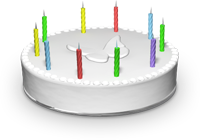
Today marks the twenty year anniversary of the very first public release of MorphOS, which ran exclusively on Commodore Amiga computers equipped with phase5 PowerPC accelerator cards.
The MorphOS development team would like to thank all MorphOS users for their on-going support and interest.
The MorphOS development team is proud to announce the release of the MorphOS Software Development Kit 3.14 (April 2020).
This release is our biggest update yet and offers countless improvements in our compilers, includes, libnix, GeekGadget environment, tools and ixemul.library. We've updated GCC 8 and 9 to their latest versions. Binutils, cmake and git, among others, were also updated. The full list of changes may be found in the SDK.readme file included in the distribution.
Our new SDK requires MorphOS 3.13 and about 2 GB of free disk space and can be found in our files section. As usual, a separate source package is available for download as well.
The release of MorphOS 3.13 exposed a long standing bug in ixemul.library: Due to an oversight the library defaults to a wrong FPU rounding mode. The bug can manifest itself in various ways, one example is "tinny" audio output in various games. Only applications using ixemul.library are affected. We have released a hotfix that addresses this issue.
Please download the archive, unarchive it, and follow the instructions in the accompanied README file to complete the installation.

The MorphOS development team is proud to announce the immediate availability of MorphOS 3.13. This new version offers more sophisticated text rendering including new font hinting and anti-aliasing modes to choose from. These include subpixel anti-aliasing for sharper and more detailed text on most LCD displays for any applications that allow text output via TTEngine. For those interested in testing this new feature, go to the Fonts section of System Preferences, enable "LCD" anti-aliasing, save your changes and then reboot. Next, run our integrated development environment Flow Studio, go to Editor Settings and switch on TTEngine mode.
In addition to general stability, performance, and security improvements, MorphOS 3.13 also brings important bug fixes for Pegasos I, Pegasos II, and Sam 460 systems as well as a driver for the on-board Gigabit ethernet controller found on A-EON P50x0 mainboards. For owners of Apple PowerMac7.x computers, there is a new shell tool for controlling the fan speed along with inspecting fan status and system sensor temperatures on these systems.
Existing users who have kept the built-in 'Default' choice for window skins will notice an altered appearance after upgrading. Anybody who prefers the previous look is advised to switch from "Default" to "Ferox" in the Screens section of System Preferences. Likewise, if your window skin was changed and you would like the rest of the user interface to look similar, please open MUI Preferences, click on the Settings button and choose the "Origo" theme. Please note that this step may overwrite personalized settings unless you choose to save them as a custom theme beforehand.
We strongly urge new users to carefully read our installation and troubleshooting guides before they attempt to install MorphOS for the first time. Existing users can upgrade via the familiar procedure but are encouraged to read the guides as well. MorphOS 3.13 is available for download in our files section.
The MorphOS development team is proud to announce the release of the MorphOS Software Development Kit 3.14 (November 2019).
This new version contains updated binutils and addresses a few minor issues such as disk space requirements as it reduces the size of installation by about 1 gigabyte.
Our new SDK requires MorphOS 3.12 and about 2 GB of free disk space and can be found in our files section. As usual, a separate source package is available for download as well.
The MorphOS development team is proud to announce the release of the MorphOS Software Development Kit 3.14 (October 2019).
Our new software development kit advances a number of key technologies enabled by updates to the latest binutils 2.32, ports of the most recent versions of the GCC7, GCC8 and GCC9 compilers as well as a newer perl.
The threading models in GCC5 and up were changed to posix, enabling better libstdc++ compatibility in std::thread, etc thanks to the new ports of libpth and libpthread. A switch to the DWARF2 Exception Handling Model improves performance of C++ code of up to 30 percent. Objective-C ARC is now supported on MorphOS thanks to the introduction of the ObjFW runtime and other advances in compiler ports.
The new SDK requires MorphOS 3.12 and about 3GB of free disk space and can be found in our files section. As always, a separate source package is available for download as well.
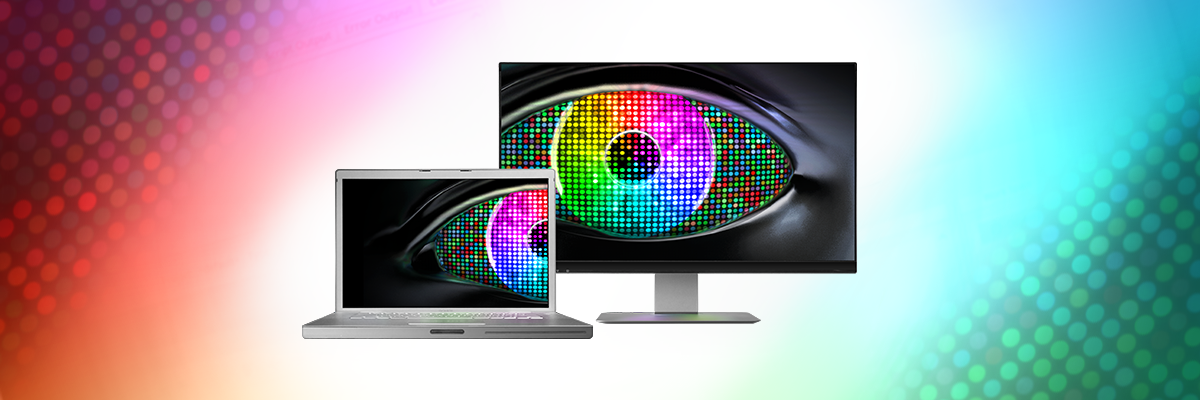
The MorphOS development team is proud to announce the public release of MorphOS 3.12. This new version introduces brand new dual-monitor capabilities to various Powerbook laptops as well as G5 desktop systems, and features improved thermal management, fan control and dynamic CPU frequency switching, which provide increased energy efficiency and reduced noise levels. Additionally, the Helios Firewire stack has been fully integrated into the core OS and we added support for hundreds of modern printers and scanners.
Furthermore, the Odyssey web browser has been upgraded and now utilizes newer and more modern components for handling connections, encryption, spell-checking, and low-level drawing operations. Plus, it features a redesigned and more adaptive user interface.
In addition, our official integrated development environment Flow Studio has been substantially updated and extended yet again bringing numerous usability and LUA scripting enhancements, full support for Hollywood, and code sensing as well as function listing abilities for many additional languages.
Developers will also appreciate the inclusion of a new MUI text rendering engine that is capable of rendering Unicode text. This feature is currently enabled in selected applications and in all ObjC applications. Thanks to the addition of the new ObjFW runtime, it is now also possible to write native ObjC applications that utilize Automatic Reference Counting (ARC).
Moreover, MorphOS now offers a rewritten spellchecker that is based on Hunspell and libvoikko cores and uses UTF-8. Spell-checking is now supported in all of MUI's string input gadgets, Flow Studio and Odyssey.
For a more comprehensive explanation of these changes and a list of additional features, such as the ability to mute the boot chime on Mac computers from within MorphOS, please read our release notes.
We strongly urge new users to carefully read our installation and troubleshooting guides before they attempt to install MorphOS for the first time. Existing users can upgrade via the familiar procedure but are encouraged to read the guides as well. MorphOS 3.12 is available for download in our files section.
The MorphOS development team is proud to announce the immediate availability of MorphOS 3.11. In addition to performance, stability and security improvements, this new version also features the first more substantial update of the Odyssey web browser in a while, which improves the rendering of and general compatibility with modern websites in several ways, as well as a more refined version of the recently introduced Flow Studio, our official integrated development environment. For a more extensive overview of the changes included in MorphOS 3.11, please read our release notes.
We strongly urge new users to carefully read our installation and troubleshooting guides before they attempt to install MorphOS for the first time. Existing users can upgrade via the familiar procedure but are encouraged to read the guides as well. MorphOS 3.11 is available for download in our files section.
The MorphOS Development Team would like to announce the immediate availability of the April 2018 release of the MorphOS SDK 3.12. The new SDK introduces support for Objective-C MUI application development, adds a Clang compiler, GCC 6.4.0, updated GCC5 as well as a GIT suite, many updated libraries and components.
Please note that, at this point, the Objective-C support should be considered a demo - both ABI and API are not yet 100% stable. MorphOS 3.12 may require your applications to be recompiled to work.
The new SDK requires at least 2GB of free disk space to install and is available for download in our files section.
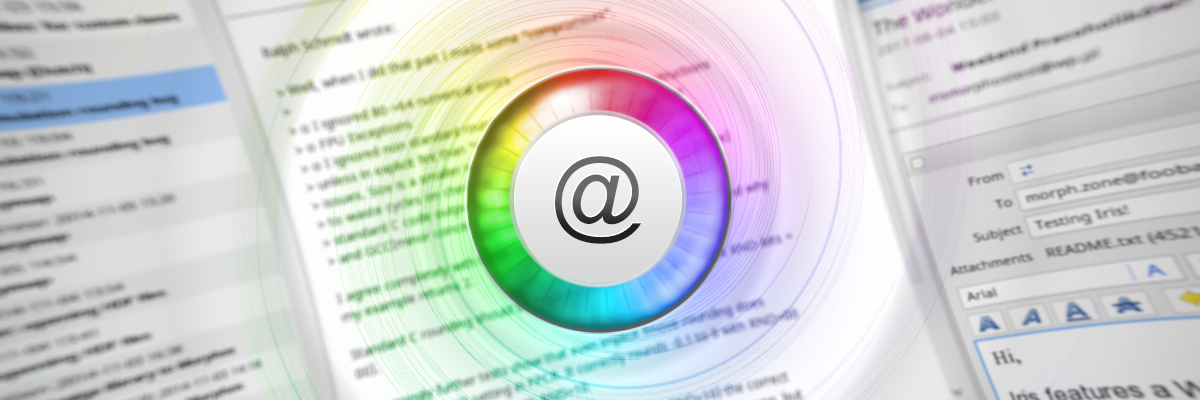
The future default email client of MorphOS has just entered its public beta testing phase. You can download it here.
Iris has been written specifically for MorphOS and utilizes the latest features introduced by the newly released MorphOS 3.10. The program is an IMAP-centered email client that supports OAuth2 for GMail as well as Outlook.com. Moreover, it enables to both display and compose rich HTML emails that feature embedded images and custom styles.
Please note that this is still an early beta version and may contain bugs. For questions and help, please refer to the Iris blog on MorphZone.
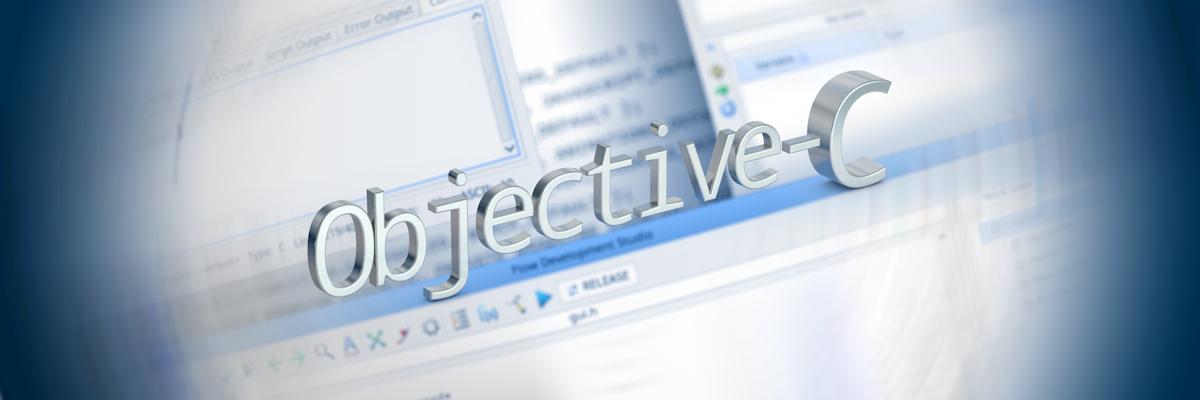
MorphOS 3.10 introduces first applications written in ObjectiveC-MUI. You can read more about the implementation details and how MorphOS developers will be able to use the new frameworks in this article.

The MorphOS development team is proud to announce the immediate availability of MorphOS 3.10, which represents one of the biggest updates in its history yet. This brand new version introduces support for AmigaOne X5000 systems as well as A-EON X5000 mainboards, and it greatly expands the general hardware compatibility by adding numerous new drivers for graphics cards, scanners, network cards, SATA controllers, and USB audio devices.
Furthermore, MorphOS 3.10 brings Flow Studio, which is an integrated development environment that offers features such as a built-in source level debugger and seamless MorphOS shell access.
In addition to many bug fixes and general performance improvements, MorphOS 3.10 also provides varied user interface and usability improvements. This release includes modern themes, new fonts, and support for vector graphics, such as SVG icons, as well as time zones via Coordinated Universal Time.
For a more extensive overview of the included changes, please read our release notes.
As usual, existing MorphOS users can update to the latest release entirely for free.
We strongly urge new users to carefully read our installation and troubleshooting guides before they attempt to install MorphOS for the first time. Existing users can upgrade via the familiar procedure but are encouraged to read the guides as well. MorphOS 3.10 is available for download in our files section.
The MorphOS development team would like to announce the immediate availability of the June 2016 release of MorphOS Software Development Kit (SDK) 3.10. The new SDK sports a bugfixed GCC5 compiler, updated ixemul and SSL libraries as well as improvements in its documentation and include files.
The new software development kit is available for download in our files section.
The MorphOS development team would like to announce the immediate availability of version 3.10 of the official MorphOS Software Development Kit (SDK). The most notable additions and changes are:
- GCC 5.3.0, including baserel support
- Added a Lua interpreter
- Updates ixemul to 50.16
- Updated tar to 1.28 and sed to 4.2.2
Important: The new SDK requires at least 650 MB of free disk space to install!
The new software development kit is available for download in our files section.
The MorphOS development team is proud to announce the immediate availability of MorphOS 3.9, which is primarily a stability and security update, and MorphOS SDK 3.9, which features updated system includes, OpenSSL, ixemul (50.10) and an integrated Scintilla documentation file. For a more extensive overview of the changes included in MorphOS 3.9, please read our release notes.
We strongly urge new users to carefully read our installation and troubleshooting guides before they attempt to install MorphOS for the first time. Existing users can upgrade via the familiar procedure but are encouraged to read the guides as well. MorphOS 3.9 is available for download in our files section.
The MorphOS development team is proud to announce the public release of MorphOS 3.8, which introduces support for ACube's Sam460 series of mainboards and numerous Radeon graphics cards from AMD's X1000 and HD series. In addition to various performance improvements related to the Quark kernel, Exec, 3D graphics and video playback, MorphOS 3.8 also adds the ability to use state-of-the-art 4K displays in their native resolution. For a more extensive overview of the included changes, please read our release notes.
As usual, existing MorphOS users can update to the latest release entirely for free. Sam460 owners who are interested to register MorphOS for their system will be able to do so for 49 EUR.
We strongly urge new users to carefully read our installation and troubleshooting guides before they attempt to install MorphOS for the first time. Existing users can upgrade via the familiar procedure but are encouraged to read the guides as well. MorphOS 3.8 is available for download in our files section.
The MorphOS development team is proud to announce the public release of MorphOS 3.7, which features various bug fixes as well as other minor improvements. For an overview of the included changes, please read our release notes.
We strongly urge new users to carefully read our installation and troubleshooting guides before they attempt to install MorphOS for the first time. Existing users can upgrade via the familiar procedure but are encouraged to read the guides as well. MorphOS 3.7 is available for download in our files section.
The MorphOS development team is proud to announce the immediate availability of MorphOS 3.6. Delivering one of the most requested features, this new version can now utilize the built-in Wi-Fi hardware in all Apple systems that feature Broadcom´s BCM43 chipset. In addition, MorphOS further extends its support of graphics chipsets to include AMD´s R400 series by adding compatibility with Radeon X800 XT / Pro and FireGL X3 cards. Moreover, the latest version of MorphOS now enables laptop owners to define custom screen modes and provides default modes for increasingly common high resolution displays.
Improving interoperability and overall convenience, MorphOS 3.6 adds a new SMBFS filesystem handler with 64-bit I/O support for easy file sharing via network storage devices, a new VNC server to control your MorphOS systems remotely or even without a display, and a Synergy client for sharing a nearby mouse and keyboard with any Linux, MacOS or Windows machine that is part of your local network and acts as a Synergy server.
As usual, MorphOS 3.6 includes many more improvements and bug fixes. For a more complete list of all changes, please read our MorphOS 3.6 release notes.
We strongly urge new users to carefully read our installation and troubleshooting guides before they attempt to install MorphOS for the first time. Existing users can upgrade via the familiar procedure but are encouraged to read the guides as well. MorphOS 3.6 is available for download in our files section.
The MorphOS development team would like to announce the immediate availability of version 3.5 of the official MorphOS Software Development Kit (SDK). Some of the included changes are:
- LogTool no longer allows multiple ramdebug sessions running at once
- Updated includes, better SDK indexing for Scribble
- Updated OpenSSL and dependencies
The new software development kit is available for download in our files section.
Jacek Piszczek has written a special guide containing instructions on how to boot, install and update MorphOS from USB media. All interested users will find it in our guide section.
The MorphOS development team would like to announce the immediate availability of an update for MorphOS 3.5. All users who experienced boot problems after installing MorphOS 3.5 are advised to install MorphOS 3.5.1. The developers would like to apologize for any inconveniences caused.
The MorphOS development team is proud to announce the public release of MorphOS 3.5, which introduces support for PowerMac 7,2 machines and features various bug fixes as well as other improvements. For an overview of the included changes, please read our release notes.
We strongly urge new users to carefully read our installation and troubleshooting guides before they attempt to install MorphOS for the first time. Existing users can upgrade via the familiar procedure but are encouraged to read the guides as well. MorphOS 3.5 is available for download in our files section.
The MorphOS development team is proud to announce the public release of MorphOS 3.4, which introduces faster R300 graphics drivers, improved video playback on G5-based systems, support for non-native display resolutions on various PowerBooks, screen blanker password protection, and numerous bug fixes and other improvements. For an overview of the included changes, please read our release notes.
We strongly urge new users to carefully read our installation and troubleshooting guides before they attempt to install MorphOS for the first time. Existing users can upgrade via the familiar procedure but are encouraged to read the guides as well. MorphOS 3.4 is available for download in our files section.
The MorphOS development team is proud to announce the public release of MorphOS 3.3, which includes various bug fixes and other improvements. For an overview of the included changes, please read our release notes.
We strongly urge new users to carefully read our installation and troubleshooting guides before they attempt to install MorphOS for the first time. Existing users can upgrade via the familiar procedure but are encouraged to read the guides as well. MorphOS 3.3 is available for download in our files section.

In order to celebrate the 2000th MorphOS registration, we'd like to thank our users for their support since the introduction of the MorphOS 2.0 in 2008. Since MorphOS 2.4, we've been expanding our hardware base to a variety of Apple PowerPC computers, including their excellent portables. The adoption rate of the Mac mini quickly surpassed the bPlan machines, and the Mini still remains the most popular MorphOS platform.
Hardware Statistics:
- 37%Mac Mini
- 25%Pegasos 2
- 12%Powerbooks
- 9%PowerMac G4
- 8%Efika
- 4%Pegasos 1
- 3%PowerMac G5
- 2%Others
The MorphOS development team is proud to announce the public release of MorphOS 3.2, which introduces support for Power Mac G5 workstations, iBook G4 laptops and additional PowerBook G4 models. The 3.2 release also has a strong focus on improved network support with a completely new and improved NetStack core as well as support for wireless networks. In addition, there are several new network-related tools such as VNC client, a Remote Desktop Client and a tool showing detailed network statistics. As usual, the latest release also offers many new features and bug fixes. For an overview of the included changes, please read our release notes.
We strongly urge new users to carefully read our installation and troubleshooting guides before they attempt to install MorphOS for the first time. Existing users can upgrade via the familiar procedure but are encouraged to read the guides as well. MorphOS 3.2 is available for download in our files section.
The final version of the MorphOS 3.2 SDK is now available.
The MorphOS 3.2 SDK is now available. The package comes with updated GG environment, current MorphOS includes, updated documentation, and many minor fixes. Please note that this is a beta release.
Minimum requirements: MorphOS 3.1.
Apart from the installation archive, a package with GG and GCC sources used in the SDK is also available for download.
The MorphOS development team is proud to announce the public release of MorphOS 3.1, which offers various enhancements and bug fixes. For an overview of the included changes, please read our release notes.
We strongly urge new users to carefully read our installation and troubleshooting guides before they attempt to install MorphOS for the first time. Existing users can upgrade via the familiar procedure but are encouraged to read the guides as well. MorphOS 3.1 is available for download in our files section.
 The MorphOS development team is proud to announce the public release of MorphOS 3.0, the first ever public version to install on portable computers, specifically PowerBook G4 machines. In addition to the extended hardware support, users will benefit from various new features, enhancements and bug fixes. For an overview of the included changes, please read our release notes.
The MorphOS development team is proud to announce the public release of MorphOS 3.0, the first ever public version to install on portable computers, specifically PowerBook G4 machines. In addition to the extended hardware support, users will benefit from various new features, enhancements and bug fixes. For an overview of the included changes, please read our release notes.
To celebrate the much anticipated release of MorphOS 3.0, we are furthermore offering special three-tier pricing. The prices for a keyfile are 111.11 EUR for one PowerBook G4 system, 79 EUR for one eMac, Mac mini G4, Pegasos I, Pegasos II or PowerMac G4, and 49 EUR for one EfikaPPC system.
We strongly urge owners of PowerBook G4 computers to carefully read our installation and troubleshooting guides before they attempt to install MorphOS for the first time. Existing users can upgrade via the familiar procedure but are encouraged to read the guides as well. MorphOS 3.0 is available for download in our files section.
This update fixes minor issues related to Scribble MUI update as well as improves project indexing functionality.
You can download the MorphOS SDK 2 in our files section.
The MorphOS development team would like to announce that a new version of the MorphOS Software Development Kit 2 is now available. All developers who are interested to upgrade their existing MorphOS development infrastructure will need a computer running MorphOS 2.7 and at least 300 MB of free disk space.
For a long time we felt that MorphOS deserved a better and more modern text editor than those old beasts that we have been holding on to so dearly.
Scribble is here now!
You can download the MorphOS SDK 2 in our files section or see it in action here.
The MorphOS development team would like to announce that a new version of the MorphOS Software Development Kit 2 is now available. All developers who are interested to upgrade their existing MorphOS development infrastructure will need a computer running MorphOS 2.7 and at least 300 MB of free disk space.
The July 2011 release of the MorphOS SDK 2 includes the following changes:
- GCC 4.4.5, 2.95.4
- Fixed GCC 2.95.3 not to generate AltiVec code in C++ exceptions handling
You can download the MorphOS SDK 2 in our files section.
The MorphOS development team is proud to announce the public release of MorphOS 2.7 which fixes various issues and includes a number of minor improvements. For an overview of the included changes, please read our release notes.
We strongly urge users who are new to MorphOS to carefully read our installation and troubleshooting guides before they attempt to install MorphOS for the first time. Existing users can upgrade via the familiar procedure but are encouraged to read the guides as well. MorphOS 2.7 is available for download in our files section.
The MorphOS development team is proud to announce the public release of MorphOS 2.6 introducing support of Power Mac G4 systems. In addition to the extended hardware support, existing users will benefit from various bug fixes and a few new features. For an overview of the included changes, please read our release notes.
We strongly urge owners of Power Mac computers to carefully read our installation and troubleshooting guides before they attempt to install MorphOS for the first time. Existing users can upgrade via the familiar procedure but are encouraged to read the guides as well. MorphOS 2.6 is available for download in our files section.

Today marks the ten year anniversary of the very first public release of MorphOS, which ran exclusively on Commodore Amiga computers equipped with phase5 PowerPC accelerator cards.
The MorphOS development team would like to thank all MorphOS users for their on-going support and interest.
The MorphOS development team would like to announce that the MorphOS Software Development Kit 2 has left the beta state. All developers who are interested to upgrade their existing MorphOS development infrastructure will need a computer running the recently finished MorphOS 2.5 and at least 300 MB of free disk space.
The latest release of the MorphOS SDK 2 includes the following changes:
- Improved MorphEd compatibility when invzeropage is enabled
- Added minor improvements to the documentation
- Added a convenient update mode to the installer
- Increased the amount of example source code
You can download the MorphOS SDK 2 in our files section.
The MorphOS development team would like to announce the immediate availability of the MorphOS Software Development Kit 2. This first release is officially in beta state and will be followed up by updates in the near future. Developers who would like to test the software development kit will need a computer running the recently finished MorphOS 2.5 and at least 300 MB of free disk space.
Notable features of the MorphOS SDK 2 are as follows:
- MorphED with MUI-centric quickhelp (shows syntax of MUI methods, MUI special values for an attribute, etc)
- GCC 2.95.3 compiler with AltiVec support and C++ enhancements
- GCC 4.4.4 compiler
- MUI, Reggae and System documentation in text and aguide formats
- Example source code
- Development utilities: logtool and Wipeout
- Complete GeekGadgets environment
- Easy to use installer
You can download the MorphOS SDK 2 in our files section.
The MorphOS development team is proud to announce the public release of MorphOS 2.5, the fifth new OS version since the debut of MorphOS 2.0 in the same month two years ago. MorphOS 2.5 finally adds the Apple eMac to its list of officially supported platforms. In addition to the extended hardware support, existing users will benefit from various bug fixes and a few new features. For an overview of the included changes, please read our release notes.
We strongly urge owners of eMac computers to carefully read our installation and troubleshooting guides before they attempt to install MorphOS for the first time. Existing users can upgrade via the familiar procedure but are encouraged to read the guides as well. MorphOS 2.5 is available for download in our files section.
In anticipation of the 2nd anniversary of the release of MorphOS 2.0 later this month, you are now able to purchase a MorphOS keyfile at the special celebratory price of 111,11 EUR (includ. 19% VAT), the same price that was available to the very first buyers of version 2 of MorphOS during our introductory phase in 2008.
 The MorphOS development team is proud to announce the public release of MorphOS 2.4, the first ever public version to install on Mac mini G4 machines. In addition to the extended hardware support, existing users will benefit from various bug fixes and a few new features. For an overview of the included changes, please read our release notes.
The MorphOS development team is proud to announce the public release of MorphOS 2.4, the first ever public version to install on Mac mini G4 machines. In addition to the extended hardware support, existing users will benefit from various bug fixes and a few new features. For an overview of the included changes, please read our release notes.
We strongly urge owners of Mac mini G4 computers to carefully read our installation and troubleshooting guides before they attempt to install MorphOS for the first time. Existing users can upgrade via the familiar procedure but are encouraged to read the guides as well. MorphOS 2.4 is available for download in our files section.
In related news, MorphOS 2.4 will be demonstrated at the upcoming Amiga Meeting in Bad Bramstedt. Interested users will be able to pay and register MorphOS at the event.
The MorphOS development team is proud to announce the public release of MorphOS 2.3, a free update for users of MorphOS 2.2, 2.1 and 2.0. In addition to numerous bug fixes, MorphOS 2.3 includes additional optimizations and new features such as configuration options for the MorphOS display engine, useful utilities for the screen bar and read-only support for HFS+ formatted volumes. For an overview of the included changes, please read our release notes.
A description of the hardware requirements and installation procedures can be found here. MorphOS 2.3 is available for download in our files section.
Harry "Piru" Sintonen wrote a development article about the new MorphOS memory system that was first introduced with MorphOS 2.0. It provides an in-depth view on the overall design goals and technical implementation.
You can read it by clicking this link.

The MorphOS development team would like to wish everyone a Happy New Year.

As the first release of 2009, we have prepared an update pack for the now out-of-date MorphOS 1.4.x which includes various minor improvements. Most notably, the archive includes several libraries that are required to stay compatible with new software releases, such as future Ambient versions and applications relying on PowerSDL, as many developers continue to migrate to MorphOS 2.x.
The Update Pack for MorphOS 1.4.x is available for download in our files section. To install the update, unpack the archive and copy all files to your system partition. Please take special note that this update is not intented to be installed on MorphOS 2.x and higher.
The MorphOS development team is proud to announce the public release of MorphOS 2.2, a free update for users of MorphOS 2.1 and 2.0. In addition to numerous bug fixes, MorphOS 2.2 includes additional optimizations and new features such as Kryptos, a disk encryption suite. For an overview of the included changes, please read our release notes.
A description of the hardware requirements and installation procedures can be found here. MorphOS 2.2 is available for download in our files section.
As a precursor to a more substantial SDK update to be released in the future, the MorphOS development team has prepared a package of MorphOS 2.1 system includes for interested third party developers. It was designed as an intermediate drop-in replacement for the os-include part found in the current version of the MorphOS SDK. Regardless of what MorphOS version you develop for, an update is beneficial in any case as the archive includes various fixes and improvements, such as support for the latest release of the VBCC compiler.
In order to use the MorphOS 2.1 system includes, it is suggested to either replace the older archive with this one during a fresh installation of the SDK, or to extract the archive and then replace your os-include directory (Special note: do not simply copy the content). The package can be downloaded in our files section.
The MorphOS development team is proud to announce the public release of MorphOS 2.1, a free update for users of MorphOS 2.0. In addition to numerous bug fixes, MorphOS 2.1 includes several new features. Some of the most notable ones are the much anticipated sound driver for EFIKA mainboards, a 2D driver for XGI Volari V3XT graphics cards and a virtual CybergraphX monitor (for operating MorphOS without the use of a graphics card via VNCServer). For an overview of the included changes and possible limitations of the forementioned features, please read our release notes.
A description of the hardware requirements and installation procedures can be found here. MorphOS 2.1 is available for download in our files section.
Based on the feedback on the newly released MorphOS 2.0, we have added a new Help Desk section to this website which covers solutions to various potential problems and answers to general questions. In case your problem or question is not listed, please sign up to our mailing list by following the instructions on the same page.
The MorphOS development team is proud to announce the public release of the much anticipated version 2.0 of MorphOS. For an overview of the included new features and updates, please read our release notes. A description of the hardware requirements and installation procedures can be found here. Please check this web page for further updates.

By visiting our download center, you can download a time-limited, yet full-featured version of MorphOS 2.0. In order to bypass the time limit and order a keyfile, please use the included registration software which is to be found in the Tools drawer.
Please note that a MorphOS 2.0 key is available at 111,11 EUR (includes 19% VAT) as an introductory offer. On Tuesday, the 15th of July, the price will go up to 150 EUR (includes 19% VAT).
A new version of the Just-In-Time Compiler TRANCE has been released. The changes since the previous release are:
- Fixed a bug that would make certain IBrowse CPU versions crash (at least IBrowse 2.3 and 2.4)
- Some SAS/C float/double integer calculation fixes (lsd/asd X flag). For example, the integer version of IBrowse's javascript.library.
- addx/subx with predecrement was fixed. These instructions are very rare, but could be used for some multiprecision math.
- Trancestats has been updated to work properly with the latest MUI versions.
In order to install Trance v50.12 (09.12.2006) on your MorphOS system, please download the update from the MorphOS download portal or FTP server. Then, follow these steps:
- Copy MorphOS/C/trance to MOSSYS:C/
- Copy MorphOS/Libs/trance.library to MOSSYS:Libs/
- Copy Utilities/Trancestats SYS:Utilities/
- Reboot
The MorphOS Team wishes everyone Happy Holidays and a Great New Year!
The MorphOS Team is pleased to announce that the next public release of MorphOS will support the EFIKA. The EFIKA is a low-power and silent miniature mainboard based on the Freescale MPC5200B SoC.
With great regrets we were notified today that Michal Rybinski died yesterday in a motorbike accident. The MorphOS Team would like to express their deepest sorrow and condolences to Michal's family and friends.
Michal was a MorphOS developer and he helped a lot on past MorphOS releases.
A new version of the MorphOS 3D Update has been released. The changes since the previous release are:
- r200, rv250 and rv280 cards (8500, 9000, 9100, 9200, 9250) now work on Pegasos 1.
- Fixed a rare lockup condition on r200 (8500, 9100).
- Fixed a random crash on starting the first 3D application on Pegasos 1.
- Fixed a scissoring problem on r200, rv250 and rv280 (8500, 9000, 9100, 9200, 9250)
- Minor speedups and improvements
The update can be downloaded from download.morphos-team.net or the MorphOS FTP site.
The MorphOS development team is pleased to announce the immediate availability of another MorphOS update for computers equipped with PowerUP accelerator cards. The included changes are as follows:
- now with 666% more evil than the competitors
- fixed A4000T mainboard SCSI support
- added missing execute protection flags for 68k monitor drivers
- added missing #?Monitor prefs files for 68k monitor drivers
The MorphOS Free Edition for PowerUP can be downloaded from powerup.morphos-team.net. We suggest to carefully read the instructions on the website as well as in the included "readme" text to make the installation process as effortless as possible.
The MorphOS development team would like to inform all Pegasos owners that new versions of "parallel.device" and "rtl_8139pci.device" are available for download. The files can be obtained by registered users from either the FTP server or the usual download website.
Pegasos owners who do not make use of the parallel port or rtl based ethernet cards when running MorphOS, may skip these updates as they will not provide any benefits. Everyone else is advised to install the new files to further enhance their MorphOS activities.
As of May 9th 2006, German email service provider GMX has blocked all mails coming from morphos-team.net. Furthermore, it does not accept outgoing mails to morphos-team.net either because it wrongly categorizes the morphos-team.net IP address to be in a dialup IP range. GMX blocks any communication with hosts in such ranges by default.
Feel free to visit www.gmx.net/serverrules/ for details.
Please note that affected users have no way to change this behaviour by modifying the anti-spam settings of their GMX account.
The GMX customer service (support@gmx-gmbh.de) was contacted but failed to understand the problem and could not provide assistance in the matter. As it is unclear at this point whether GMX will be able or willing to solve the problem, we hereby suggest all MorphOS users with an affected email address to resubscribe to the support mailinglists with a non-GMX address. In order to do this, please fill out the form found at support.morphos-team.net.
Also, please take note that the PowerUP registration process is hindered by this as well, so do not try to register using a GMX address.
